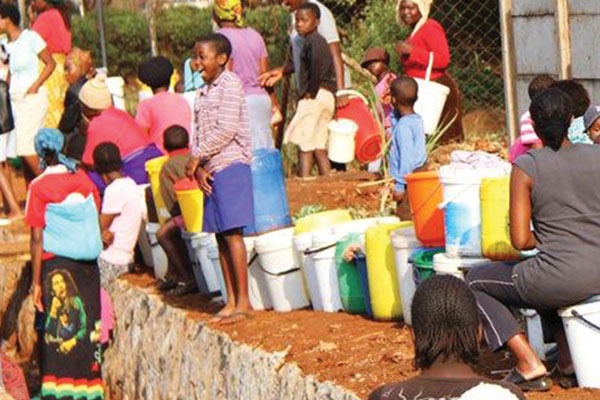
PERENNIAL operational problems confronting businesses in Bulawayo have been well documented, many of them are global.
EDITORIAL COMMENT
They are the same drawbacks that have crippled production in firms across all regions like foreign currency shortages, the high cost of doing business and policy inconsistencies.
Bulawayo, the country’s proverbial industrial hub is facing a unique problem where companies are now closing shop because of water shortages. It’s a problem as old as time and all mooted solutions have either not worked or been ignored.
Bulawayo is probably the most liveable city in this country, but the water situation has been allowed to rend livelihoods and decimate its social fabric as residents are now spending most of their time toiling to fetch water for domestic use.
The closure of United Refineries Limited, one of the largest companies that are headquartered in the city, means the crisis has reached tipping point.
For many of our citizens in Bulawayo, any water, clean or dirty, qualifies for domestic use.
This is bad and the city fathers and government should hang their heads in shame for letting things get out of hand. Zimbabwe has suffered severe weather in recent times and the current situation brings to mind the 1991 drought, the worst in living memory for this region, which almost forced the authorities to consider evacuating the city according to unofficial accounts.
- Chamisa under fire over US$120K donation
- Mavhunga puts DeMbare into Chibuku quarterfinals
- Pension funds bet on Cabora Bassa oilfields
- Councils defy govt fire tender directive
Keep Reading
Where is forward planning? This is the worst form of abuse a people can be subjected to by their government. It is not that government is not aware of the problem, but it has allowed political expediency to cloud its judgment.
But Tuesday’s decision by United Refineries Limited to suspend operations due to the worsening water crisis should be a wake-up call that the crisis has a far-reaching impact that puts economic recovery in peril.
URL is important for many reasons. It manufactures products in Bulawayo and distributes them to all nearby centres at a much lower cost than those landing from Harare.
In addition, the company is one of the big employers in Bulawayo, given the scale of its operations.
Losing such a key player in the economy threatens the livelihoods of many people. We wonder why government has taken time to address this very important issue, which has been ongoing since well before independence.
The result of water shortages is that Bulawayo has lost its position as Zimbabwe’s industrial hub.
In 2011, a US$48 million deal was struck with a local bank to address the problems that beset Bulawayo industries. It was not only looted by the big fish, but government did not meet its end of the bargain.
The result has been the continuous flight of key firms from that city, with terrifying implications.
Government has failed to provide an immediate solution to the water crisis, but it still has a chance to redeem itself by doing the right thing: accelerating the Gwayi-Shangani Dam project and ultimately bring the long-mooted Matabeleland Zambezi Water Project to fruition.
The right thing is to address Bulawayo’s water challenges in order to keep industries running, and our citizens healthy.











